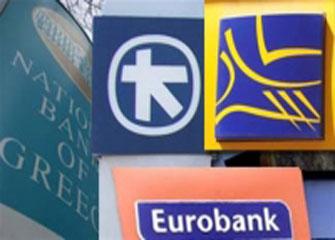By NIKI KITSANTONIS, New York Times
As Greece continues trying to claw its way out of its debt hole, the results of the European Central Bank’s review of the country’s lenders were hailed in Athens on Sunday — because they were not worse.
The review indicated that two big Greek banks still needed to raise a total of 2.69 billion euros, or $3.4 billion, in additional capital to be sufficiently able to weather any likely financial storm or economic crisis.
Coming up with that amount might be achievable, and Athens officials said the relatively small amount was a sign that their country’s fragile economy was on course to recovery after a six-year recession and €240 billion in international bailouts.
The bank review ‘‘surpassed all expectations,’’ Prime Minister Antonis Samaras said Sunday, adding, ‘‘Step by step, on stable foundations, we are emerging from the crisis.’’
But analysts said the outcome did not lighten the challenges that Mr. Samaras’s beleaguered coalition government faces from Greeks weary of high unemployment and the austerity budgets and economic reforms that have been demanded by the country’s international lenders.
‘‘The best scenario would have been zero capital needs,’’ said Rahman Mujtaba, an analyst with the Eurasia Group in London. ‘‘Anything that subtracts from that context will make the political conversation for Greece more difficult and more complicated.’’
The Athens government, Mr. Mujtaba said, may yet need to seek further funding from the European creditors if the banks fail to cover their capital shortfalls.
Finance Minister Gikas Hardouvelis said Sunday that Greece’s banks still had €11.4 billion available from a €50 billion recapitalization program financed by Greece’s international creditors and completed last year.
The European Central Bank test results showed that three of the four major Greek banks would have required additional financing based on the lenders’ ledgers at the end of 2013. But one of those banks, Piraeus, was found to have since raised adequate capital to satisfy regulators, covering a gap of ¤660 million.
Of the other two lenders deemed capital-deficient, Eurobank must raise €1.76 billion and National Bank of Greece must raise €930 million. Those banks have two weeks to file plans with the European Central Bank on how they plan to meet that shortfall and then have nine months to come up with the money.
The optimism in Athens appeared to be based on a Greek central bank assessment that Eurobank and National Bank were better off than the E.C.B.’s numbers suggested, because of various capital increases and restructuring plans that have been put in place this year. National Bank, for example, plans to raise money through the sale of its minority stake in the Turkish lender Finansbank.
According to the lenders’ own data, National Bank needs to raise only an additional €273 million and Eurobank an additional €17.5 million in capital.
But Mr. Mujtaba, the Eurasia Group analyst, said that the assessment was ‘‘not credible’’ and that any additional capital requirements ‘‘raise a question of confidence.’’
The outcome of the European Central Bank stress tests had been keenly anticipated in Greece, where the Samaras government has been vowing to emerge from its international bailout at the end of 2014, more than a year ahead of schedule.
Athens is hoping to use the remaining funds from the recapitalization of Greek banks to go toward paying down its staggering debt, which stands at 174 percent of gross domestic product, and as a precautionary credit line. If Greek lenders were deemed to have significant capital shortfalls, the cash buffer would be depleted significantly, obliging Athens to seek funding from other sources.
With political and social tensions growing, the government is now keen to indicate that an end to four years of creditor-imposed austerity is in sight.
In opinion polls, the leftist opposition party Syriza, which opposes the terms of the country’s bailout program, is leading by at least 5 percentage points over the New Democracy, a conservative party that leads the shaky coalition. Pressure is mounting as a presidential election is due by early next year.
If the coalition government fails to garner support in Parliament that it now lacks, early general elections would be called and Syriza would be expected to win.



















